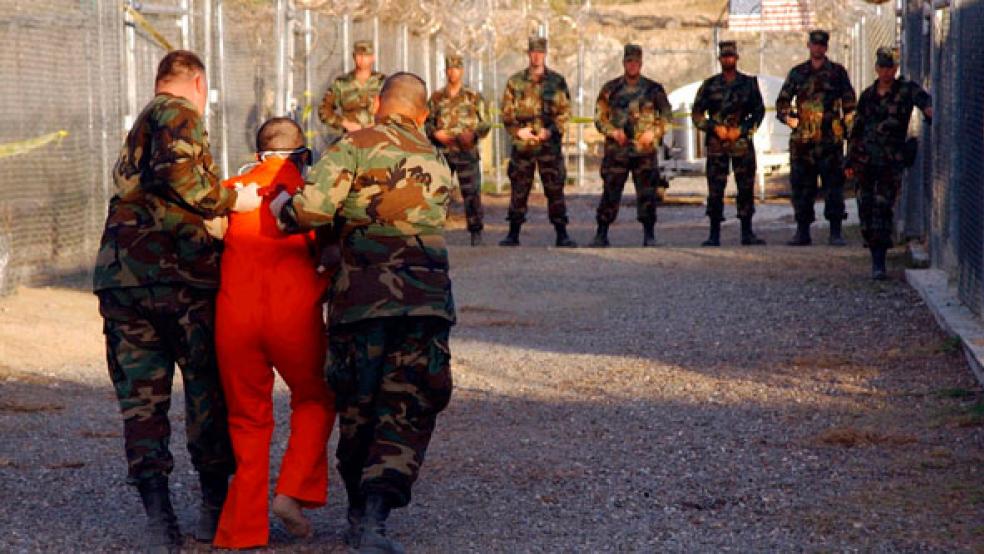Last month the Obama administration rejected a long-awaited Pentagon plan to close the U.S. detention facility at Guantanamo Bay, Cuba. The agency pegged the cost at up to $600 million, including as much as $350 million in construction costs, according to The Wall Street Journal.
Related: Obama Readies Biggest Reach of Presidential Power Yet
The price was too high for President Obama, who pledged to close the prison during the 2008 election. He rejected the scheme in a November 10 meeting with Defense Secretary Ash Carter and ordered the Pentagon to rework its plan, including finding ways to cut operating costs.
The detention site costs $400 million to operate each year. A U.S.-based facility would likely cost less than $300 million annually after initial costs, a defense official told the Journal.
There are 107 detainees at Guantanamo today. Of those, 48 have been deemed eligible to transfer to other countries.
Despite his campaign promise, and signing an executive order to close Guantanamo on his second day in office, Obama’s attempts to close the prison have been routinely thwarted by congressional lawmakers, Democrats and Republicans alike.
The latest obstacle was put in place last week when the president signed the $607 billion defense policy bill into law. The measure contained several prohibitions related to the detention facility, including a ban on transferring prisoners to U.S. soil.
Related: Obama Stumbles Again on Gitmo Closure Plan
The administration has long argued that closing the site is a cost-saving measure and would rob extremist groups like ISIS of a major recruiting tool.
Last week White House press secretary Josh Earnest said keeping the facility open is “not an efficient or effective use of taxpayer dollars when you consider the alternatives that are available.”
Any plan that costs anywhere close to the one rejected by the president is a guaranteed non-starter on Capitol Hill.
Wary lawmakers would simply point to the upfront expense of closing the prison to throw out any proposed Pentagon scheme.
Related: Obama Says Russia Wants Out of Syria. Putin says, ‘Nyet’
Even though a U.S.-based site might wind up costing hundreds of millions less, Congress has stubbornly refused to take the long view when it comes to potential savings and national security.
The politics and costs surround Guantanamo could push Obama closer to taking executive action on the facility, something he hinted at in a statement accompanying his signature of the fiscal 2016 defense blueprint.
“Under certain circumstances, the provisions in this bill concerning detainee transfers would violate constitutional separation of powers principles,” the president said.
A unilateral move to close the prison could set off a long and costly court fight with Congress.
A top Republican lawmaker signaled the kind of opposition Obama is likely to face.
“The President and his supporters have argued for years that closing GTMO will make us safer and it will save us money. No one really believes that bringing terrorists to our shores would make Americans any safer. Now we know that the President’s claims of saving us money aren’t true either,” House Armed Services Committee chair Mac Thornberry (TX) said in a statement.
He said Obama was “right to reject the plan on the basis of cost, but he was absolutely wrong to direct the Pentagon to cut corners and bring him a cheaper option. If the President is determined to bring these terrorists to the United States, he can’t do it with cut-rate security. He owes the troops who would guard these detainees, not to mention the Americans who suddenly find al Qaeda terrorists held in their backyards, far more.“





